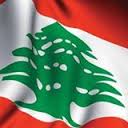
 RECHERCHONS FONDS DE SOLIDARITE POUR SAUVER LE LIBAN
RECHERCHONS FONDS DE SOLIDARITE POUR SAUVER LE LIBAN
 par M. Meguerdich Bouldoukian
par M. Meguerdich Bouldoukian
L’ancien vice-gouverneur de la Banque du Liban (1985 à 1990) M. Meguerdich Bouldoukian, relate dans cet article en langue anglaise sa proposition de créer un fonds de solidarité soutenu par des pays arabes au moment de la dévaluation de la livre libanaise en 1980. Rappelant qu’à l’époque cette initiative avait été fortement encouragée par M. Jean Godeaux, gouverneur de la Banque Nationale de Belgique.
Il évoque également le projet de Rafic Hariri alors premier ministre en 1993, le Fonds Arabe de Solidarité initié lors des conférences Paris I, II et III avec la contribution de pays pétroliers arabes et de pays amis donateurs. Troisième tentative il y a trois avec l’avènement du Président Michel Aoun où 10 milliards d’euros avaient été évoqués.
Aujourd’hui, au moment où un nouveau fonds est évoqué dans le cadre des négociations avec le FMI, la question n’est plus l’appellation ni les montants mais les moyens de gérer cet organisme s’il venait à voir le jour et les personnes qui en garantiraient une gestion saine et adéquate.
During my tenure as deputy governor of BDL from 1985-1990, I proposed the creation of an Arab Solidarity Fund to support the declining value of the Lebanese currency. The source of this Fund would have been from Arab Central Banks, (members of AMF), and managed jointly by BDL and representatives of the Arab Central Banks in order to slow down or stop the running devaluation of the Lebanese Currency in mid-80s. Early 1980, the value of the LPB to the USD was 3.5
The creation of this kind of Fund was advised, supported and encouraged by the Governor of Banque Nationale de Belgique, Mr. Jean Godeaux whom I visited in June 1985.
It was an unsuccessful project for various reasons and the Lebanese currency fluctuated up and down during the five years to reach a rate of LBP 678 to the USD on May 5, 1990, the day my term of services expired at BDL.
When President Rafik Hariri became the Prime Minister in 1993, the idea of Arab Solidarity Fund was transformed into a Development Fund, known better as PARIS I, II and III to support the economic development of post-war Lebanon. This new nomenclature included major oil producing Arab states in addition to foreign countries and international institutions.
The public debt in 1990 in foreign currency was USD 700 million.
In spite of financial assistance of PARIS I, II and III and other international sources, public debt grew year by year due to budget deficits of the state of Lebanon, financed mainly by commercial banks, local and foreign financial institutions and the international public, in the form of Eurobonds.
During the period of 1993 till today, Lebanon faced many political crises, internal as well as external caused mainly by its neighbors.
With the accession to presidency, Gen. Michel Aoun three years ago, a new Fund proposal was conceived under the title CEDRE I, for reviving the Lebanese economy which was this time conditional to the introduction of political and economic reforms by the state. The size of the Fund was estimated to be over 10 billion Euros.
So far the new “solidarity” Fund remains in suspense waiting for reforms.
In the meantime, Lebanon and its financial institutions were downgraded by international agencies due to high level of public debt about USD 90 billion, resulting to a DEBT/GDP ratio of 150%.
The new government of PM Hassan Diab in 2019 was faced with this new crisis and after long internal political discussions; it was decided to apply to the IMF for a rescue plan.
The IMF is an international institution and it has its rules and regulations, which are, applied to the last letter. Every country has a quota according to its membership and does not follow the traditional methods of funding as it was in PARIS I, II and III. Its decisions are rational and based on dependable figures and statistics.
It has its terms and recommendations when arranging funds for a rescue plan to Lebanon, which depends on its quota and most important of all on negotiations about the direction of the economy, budgets, central banking and reforms. The IMF decision can be crucial for Lebanon. Major or minor differences will exist during the negotiations before an agreement is reached. Negotiations take time while the economic, financial and the banking situations are going from bad to worse day by day.
I expect that, the IMF being a friendly institution, will come to the rescue of Lebanon, as a member country which has never asked such an assistance before since 1945 but under terms that must be acceptable by the Lebanese authorities the major prerequisite being reforms; reforms in the economy, the state budget, public debt, the independence of the judiciary body, legislation to eradicate waste and corruption in public administration.
It is true that the state of Lebanon is under financial distress; however, in my opinion I consider it is financially insolvent country. The state has financial and real assets which the IMF can take into consideration. However, reforms are the first prerequisite. The Lebanese Authorities must introduce urgently the required reforms if they want to benefit from the “generosity “of the IMF. So far, no tangible information from the Arab Monetary Fund for such a rescue plan.
On the other hand, this rescue plan for Lebanon can be an excellent opportunity for CHINA to enter into the horizon due to its SILK ROAD meg project in entering into the Middle East in force. Will they grab or miss this opportunity?
